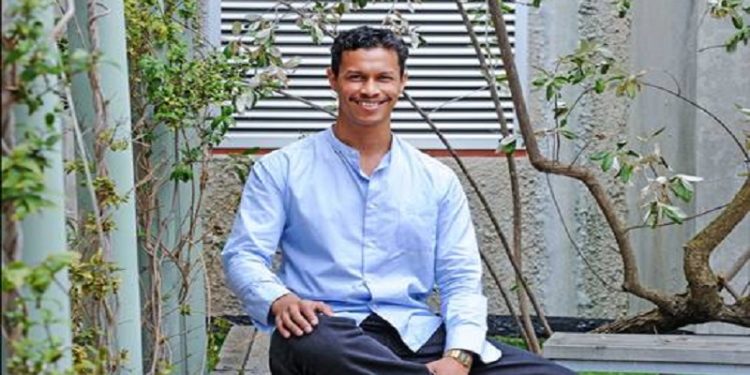University of Cape Town (UCT) student Tauhir Rakiep has won the Best Student/Research Project category of the inaugural #cocreate Blue-Green Cities Design Awards for his proposal to convert a Delft stormwater basin into a bioretention pond and a valuable natural public amenity, a blue-green oasis in a densely built setting.
Now a master’s student in the School of Architecture, Rakiep’s winning “Knowing Water” project was completed during his honours year.
The winners in three categories were announced at the conclusion of this year’s #cocreateDESIGN FESTIVAL. It was organised in collaboration with the Craft and Design Institute and curated in partnership with UCT’s Future Water Institute, the City of Cape Town and the Institute for Landscape Architecture in South Africa.
The categories were: Community-Based Project, Best Use of Water as a Design Informant and Best Student/Research Project. The 10 shortlisted candidates ranged from community volunteers and students to professionals in fields such as civil and environmental engineering, architecture, landscape architecture, urban design, and conservation.
The awards were conceptualised to celebrate inspirational initiatives that represent best practice in terms of water-sensitive design and the transition to water-sensitive cities in South Africa.
Rakiep’s winning project proposes converting a Delft stormwater basin into a bioretention pond to trap debris and smaller pollutants in incoming stormwater and “uses time” to purify the water. The design also creates a valuable natural public amenity: an oasis that offers sanctuary away from the busy Delft Main Road and in the dense built fabric.
“Understanding water, socially, has allowed me to design spaces where people witness water as a valuable resource but also as moments of reprieve and leisure,” said Rakiep.
“I have never worked towards receiving awards, recognition or public merit for the work that I do. I have always looked for ways to contribute positively, and if the contribution was not recognised, that would be okay. However, this award is absolutely validating to me as a student. It’s proven to me that there is merit and relevance in the work that I have done and I am honoured to have been able to receive recognition for it.”
Rakiep’s design weaves the needs of nature and society together.
“It’s a commons where families and friends, young and old, can come together and share knowledge passively through observation or informally through storytelling,” he explained. “The natural public amenity becomes a space that changes the perception of an attitude of indifference towards water to that of a vital resource.”
The postgraduate student from Strandfontein Village said he draws inspiration from this coastal village, which still bears the hallmarks of apartheid spatial planning.
“As a result, many areas on the coastline are disconnected from resources on their doorstep. One of those resources is the ocean. Sustainable aquaculture farming, the farming of marine organisms, has many benefits that include empowering these coastal communities by creating job opportunities and diversifying our food sources. Saldanha Bay is one example of the benefits of aquaculture farming in the Western Cape.”
But the water and social connection does not have to be at this scale, Rakiep noted.
“Access to the coast, being able to walk safely to the close-by beach in the hot summers is important for the public health of our communities.”
His “Knowing Water” project reflects this focus in his work. Understanding the way water works physically has also guided Rakiep in finding ways to create buildings that are water-sensitive, resilient and contribute positively to water management systems.
Source: University of Cape Town






 WhatsApp us
WhatsApp us 

